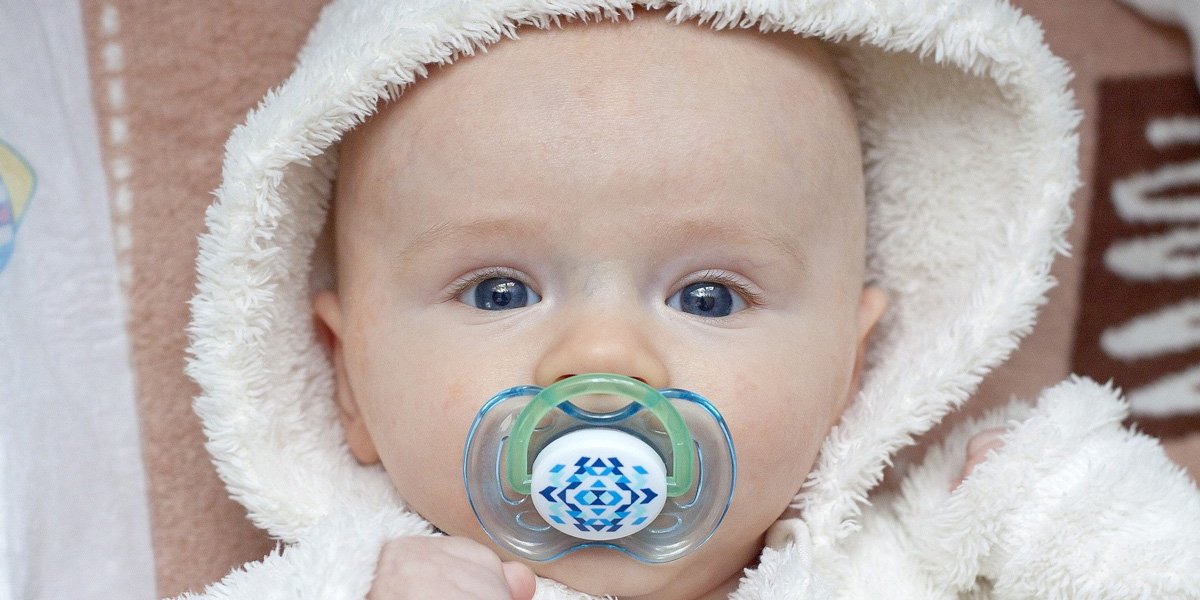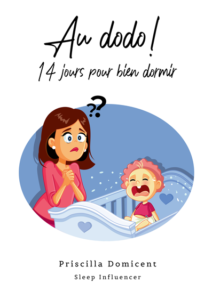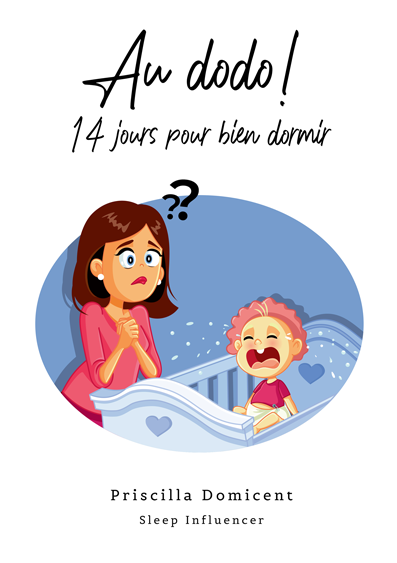The pacifier is often at the center of parental debates. Many times, parents worry about whether their baby should use pacifiers or not. We all have our opinion on this topic and every child is unique. Some babies use it as a self-soothing technique from day one, while others will never like it.
Just like anything in life, there are pros and cons with the use of the pacifier. My goal is not to share my personal point of view. It is rather to inform you about the researches carried out in relation to the pacifier. Read on to learn the pros and cons of pacifiers and how to determine what’s right for your baby.
The advantages and disadvantages of pacifiers
The major pros are that pacifiers can provide many benefits for infants, including keeping cranky baby calm and reducing the risk of Sudden Infant Death Syndrome (SIDS). However, there are drawbacks as well which include the risk of worsening colic and creating nipple confusion.
Let’s examine the main plusses and pitfalls more in detail.
Pacifier Pros
The American Academy of Pediatrics (AAP) currently states that “pacifiers do not cause any medical or psychological problems” and can be used safely to satisfy a child’s sucking instinct. Here are some reasons why parents are very grateful that pacifiers exist:
- This soothing object can make baby stop crying instantly. Research has shown, and experts agree, that babies crying for the breast or bottle are not necessarily hungry. Because of the natural and primary sucking reflex, newborns often feel an urge to suck on something. It’s not just a matter of feeding themselves; they suck their fingers, their hands and pacifiers. Therefore, a pacifier easily soothes a newborn since it meets his need for suction. For some parents, it represents the miracle object, as effective as the “mute” button on the remote control. With the pacifier clip tied on to the pacifier, and attached to clothing or car seat straps, it is pretty much impossible to lose the pacifier. That in itself makes it a lot easier to calm a fussy baby. The pacifier can also help to settle a baby back to sleep when he or she wakes up in the night.
- Pacifiers may reduce the risk of SIDS. In addition to their pleasing and calming effects, experts have found that pacifiers reduce the risk of a baby dying from SIDS. Approximately 3,500 infants die annually in the United States from sleep-related deaths, including SIDS. The AAP recommends creating a safe sleep environment and offering a pacifier at nap time and bedtime. Studies conducted have shown that the pacifier keeps the airways open by pushing the tongue forward which is likely the reason for that.
- Pacifiers can improve nutrition for preemies. According to a Cochrane review, non-nutritive sucking is associated with shorter hospital stays, earlier transition to bottle feeding from enteral feeding, and improved bottle feeding. Preterm babies who are tube-fed learn to suck during feedings and prepare for oral feedings. AAP guidelines on breastfeeding does not contradict pacifier use for oral training in preterm infants.
- Parents fully control the access to pacifiers. Kids who use pacifiers tend to stop the habit earlier than thumb sucking. Pacifier-sucking habits are probably easier to break because a thumb is always handy.
- Sucking on a pacifier eases air travel. Even if you are planning a short trip by plane, it can quickly become chaotic and stressful. Nobody likes to get the dirty looks from the other passengers when baby is crying during takeoff and landing. While the plane is going up or descending, it is recommended to either feed the baby or give the pacifier. Since he cannot yawn or chew gum, the sucking on a pacifier creates a shift in the middle ear to release the ear pressure felt.
Like with anything in life, there are disadvantages and concerns to take into account when considering giving the binky to your baby.
Pacifier Cons
- They can cause nipple confusion. Using pacifiers in the first month of life may reduce breastfeeding success, as decreased sucking time on the breast often results in lower milk supply. However there is a way around this, and that is waiting for your baby to be breastfeeding well and your milk supply coming in completely. According to the AAP, waiting until breastfeeding is well established before offering a pacifier is the best approach to take. Pediatric doctors usually advice to wait 4 to 6 weeks until you have settled into an effective nursing routine.
- Pacifiers are considered as a risk factor for ear infections. Finnish researchers are unsure why, but they found that out of children who cut back on the use of a pacifier had 33% fewer chances of ear infections than non-stop sucking kids. The continuous sucking motion opens up the auditory tubes, allowing bacteria from the mouth to enter the ears. If your baby got ear infections, you will need to talk to your pediatrician on whether to continue using the pacifier or not.
- Baby colic can appear or even worsen due to the sucking. Babies may have a tendency to suck in more air with a pacifier which can increase the chances of colic and gas. However, there were not enough studies conducted to show the risk percentage.
- You could be called for help in the middle of the night. It is only when a baby is around 8 months that he develops the pincer grasp. This is the ability to pinch the pacifier, pick it up, and put it back in his mouth without your intervention. If your baby calls you in distress during nighttime, place several pacifiers in different places or in a Tupperware in his bed. Do not give the pacifier yourself but point at it to give directions. By intervening as little as possible, your child will quickly manage to learn and replug it himself. If your baby does not have the object-grabbing skill yet, the pacifier weaning could be a preferred alternative.
- With a binky in his mouth, your child can be less inclined to communicate with you. If the pacifier is constantly stuffed into his mouth, it could hinder speech development. Learn to differentiate his cries to understand what is the message he tries to get through. Sometimes he will want to get his pacifier back but, on other occasions, he will let you know that he is hungry or feels tired. Some parents remain puzzled when their baby constantly spits out the pacifier. To counter this pacifier rejection, they hold it in the mouth, never wondering what would be the reason for such refusal. If you want to learn the babies’ universal language to better meet your little one’s needs, I advise you to check the amazing discoveries of Priscilla Dunstan.
- Babies can become overly dependent on the pacifier. If it happens to fall out of his or her mouth, it will interrupt not only nap and sleep times but will wake parents in the night often. Trust me, waking up every morning at 5:00 AM to replug your child’s pacifier is by no means an enjoyable night activity.
- Prolonged pacifier use can cause dental problems. It is usually recommended to wean a child by age 2; not only because of the risk of dependency but also due to developmental issues. Long-term pacifier use, as well as thumb sucking, can hinder the mouth growth, the teeth alignment and change the shape of the roof of the mouth. These could be more complicated to correct after a child’s second birthday. If you ever become concerned about potential malformations, contact your child’s doctor or dentist.
How to safely manage your baby’s pacifier use
Parents should be aware of potential hazards whenever it comes to giving their baby a pacifier. Should you decide to introduce a pacifier, keep these guidelines in mind:
- Check with your pediatrician first. Your doctor should be the specialist who tells you that your little one has gained enough weight and is entitled to get the pacifier. If he is having difficulty nursing or if your milk supply is low, it’s probably better to wait and use other soothing methods. You might also want to consider delaying the introduction of a pacifier if he has repeated ear infections.
- Let your baby decide. If your baby rejects the pacifier, it is best not to force him to take it. He might just be content with other soothing techniques such as rocking, swinging or cuddling. You can give it another shot later on, when he is a bit older.
- Choose the right the pacifiers. Make sure that it is not made from bisphenol-A because studies have shown that this component may be detrimental to the baby. Also, when selecting a pacifier, stick to the brand-recommended age. If it is the wrong size, it could become a hazard concern. Not to mention, make sure it has ventilation holes in the shield to allow the air in.
- Not sharing is caring. Never allow kids to share them because of passing germs to one another. If it falls, be sure to wash it with warm water right after. In fact, in between uses be sure to do that anyway so bacteria does not breed. Also, do not clean a pacifier by putting it in your mouth.
- Replace them when needed. Get new ones as soon as small cracks or other signs of wear do appear.
- Don’t tie the binky when your baby is sleeping. The AAP recommends to “never tie a pacifier to your child’s crib, or around your child’s neck or hand. This could cause a serious strangulation injury, even death.” To be on the safe side, attach the pacifier to his clothes with a clip only when he is awake.
- Dipping the pacifier in something sweet can cause tooth decay. Don’t coat your baby’s pacifier in foods such as honey, jam, maple syrup or in juice to make him stop crying. Be also aware that babies younger than 1 year old should not be given honey because it can contain spores of a bacterium that could potentially cause a fatal illness.
Now that you are more familiar the pros, cons and other concerns regarding the use of a pacifier, you are in a better position to make a decision. If you still have any doubts, contact your child’s pediatrician.
If you would like to get more information on how to improve the quality and/or the quantity of your child’s sleep (and yours at the same time), do not hesitate to schedule a 15-minute preliminary consultation. It is a totally FREE & NON-BINDING offer!










